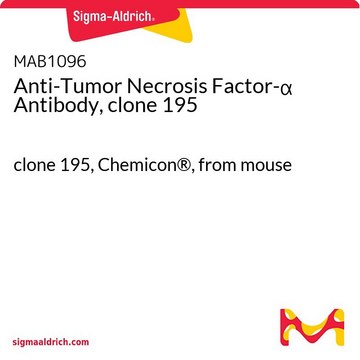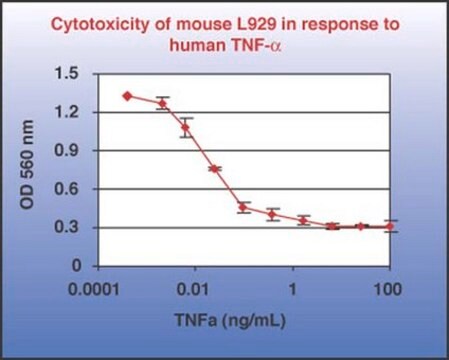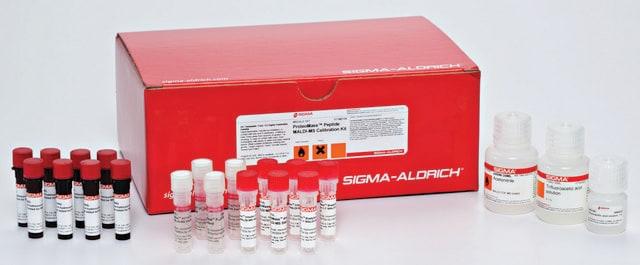MABT108
Anti-TNF-alpha induced protein 6 (TSG-6) Antibody, clone NG3
clone NG3, from mouse
Sinónimos:
Tumor necrosis factor-inducible gene 6 protein, TNF-stimulated gene 6 protein, TSG-6, Tumor necrosis factor alpha-induced protein 6, TNF alpha-induced protein 6
About This Item
Productos recomendados
biological source
mouse
Quality Level
antibody form
purified immunoglobulin
antibody product type
primary antibodies
clone
NG3, monoclonal
species reactivity
human, mouse
technique(s)
ELISA: suitable
western blot: suitable
isotype
IgG2bκ
NCBI accession no.
UniProt accession no.
shipped in
wet ice
target post-translational modification
unmodified
General description
Specificity
Immunogen
Application
Western Blot Analysis: A previous lot of this antibody was show to detect human or mouse samples (Nagyeri, G., et al. (2011). JBC. PMID: 21566135).
Cell Structure
ECM Proteins
Quality
Western Blot Analysis: 1 µg/mL of this antibody detected TSG-6 in 10 µg of mouse ovary tissue lysate.
Target description
An uncharacterized band appears at ~50 kDa in some lysates.
Physical form
Storage and Stability
Analysis Note
Mouse ovary tissue lysate
Other Notes
Disclaimer
¿No encuentra el producto adecuado?
Pruebe nuestro Herramienta de selección de productos.
Storage Class
12 - Non Combustible Liquids
wgk_germany
WGK 1
flash_point_f
Not applicable
flash_point_c
Not applicable
Certificados de análisis (COA)
Busque Certificados de análisis (COA) introduciendo el número de lote del producto. Los números de lote se encuentran en la etiqueta del producto después de las palabras «Lot» o «Batch»
¿Ya tiene este producto?
Encuentre la documentación para los productos que ha comprado recientemente en la Biblioteca de documentos.
Nuestro equipo de científicos tiene experiencia en todas las áreas de investigación: Ciencias de la vida, Ciencia de los materiales, Síntesis química, Cromatografía, Analítica y muchas otras.
Póngase en contacto con el Servicio técnico







